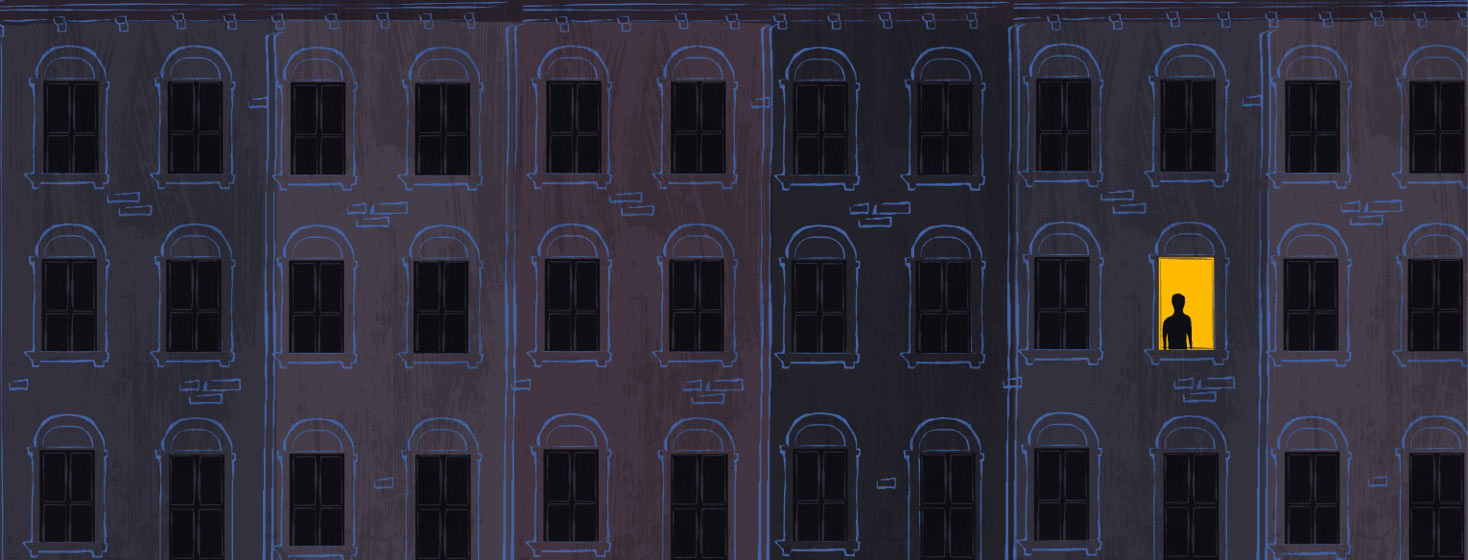Loneliness Is a Killer: Here's How I Address It
After the quarantine of the Covid pandemic, I wasn't surprised to learn that loneliness is a negative factor in treatment adherence. The International AIDS conference was held in person and was not a virtual event for the first time since the pandemic's beginning. The fact that the study was discussed at this event drives home the relevance of solitude to our mental health.
To sum it up, people living with HIV who experience loneliness are more at risk of skipping their pills.
Loneliness and HIV
It shouldn't come as a shock that loneliness is a factor in the progression of HIV. After all, it's been there since the beginning. Whether it's the fear of stigma or the isolation of losing all your friends, it's a part of living with HIV.
This is still occurring today. I live in one of the largest metropolitan cities in the Southeast, but I see young people being abandoned by their friends over a status change. Some are forced to return to their families in repressive areas with no HIV support services.
In addition to stigma and Covid, monkeypox seems to be turning up everywhere. No wonder there is such hesitancy in forming and maintaining the connections which combat loneliness.
There will always be something pushing us into isolation, whether it's a pandemic or our internal voice. This means that we must have methods of combatting this feeling. I want to share some of the things I've used to fight mine since the pandemic began.
Quick connections
Everyone seems so busy these days, even when they are in lockdown. During Covid, I proposed a simple solution to a few close friends. We all want to catch up, but not everyone can sit down for 30 minutes at a time. So, we came up with 'small calls.'
Once a week, we would commit to a quick 10 to 15-minute call. These weekly calls were something I could look forward to. They were light on the commitment but ample on the connection.
Letters and postcards
Another tool I used was letter writing. I found interested people, and we spent a few months sending correspondence back and forth. This was another light commitment with no one needing to promise a return response.
I also have found that sending postcards with just 2 to 3 sentences can be lots of fun. I pick one up whenever I'm traveling and jot a few words down.
The importance of your own space
Everyone I know spends time either at home or at work. The Covid pandemic solidified that routine in the lives of so many of us. But it's essential to have another place where you can be with others that has nothing to do with your home or professional life.
Being around other people is socially stimulating. I enjoy bringing a book to our local coffee shop and having tea. Sometimes I talk to people. Other times I enjoy people-watching.
Talk to a stranger
If you're an extrovert like me, you might enjoy establishing quick conversations with people you come across. Pay someone a compliment. Ask them about a book they are reading. Or smile at someone. It's a good reminder that we aren't alone and are in this together.
Join an online social group
Maybe you're overwhelmed with the idea of interacting with strangers or being in a group setting. One thing I learned during the pandemic is that you can travel almost anywhere in the world virtually.
I took several art tours of museums during Covid. I also joined an online book discussion group. If you want to observe, let the moderator know if you don't like talking and want to listen.
Forge a bond with an acquaintance
This has been particularly therapeutic for me. I've connected with people I've known but wasn't particularly close to in the past. The occasional shared memory or laugh has been great for me in filling in the space left by departed friends.
Professional support
There have been times when my loneliness has gotten the best of me. I'm lucky to have access to counseling services. It's been beneficial to have a non-biased person to talk to who always puts things in perspective for me.
If you're struggling with loneliness or depression, it's okay to reach out for support.
This may sound like work, but that's what relationships are. Whether it's someone who's been part of your life for decades or someone you've just met. But the payoff is worth it.
Are you a long-term HIV survivor looking to talk and connect with others who have had similar experiences? Reach out here, and find your community!

Join the conversation